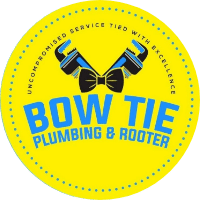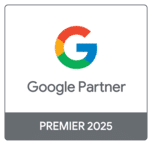How To Get The Most Out Of PPC For Your Service Area Business
As Google continues to refine the search experience, companies are relying more and more on PPC to get their message out. While not a bad idea, paid ads can quickly become expensive. When you are spending that kind of money, you need to make sure you are doing it right.
Here are 3 ways to get the best results from your paid ads!

1) Measure And Value Conversions Correctly
Too many PPC campaigns fail because they track the wrong conversion metrics. Sure, you can see how many times people visit your site, but if that’s all you measure, Google can’t tell which ads actually lead to new customers.
“You don’t want to mark a simple web visit as a conversion,” cautions Tracy Obrey, a Digital Marketing Specialist at LeadsNearby. “A valid conversion is a form fill, a booked appointment, or a phone call that results in actual business.”
PRO TIP: Assign a dollar value to each conversion type so Google learns what matters. For example, a phone call might be worth $25, a form fill $50, and a booked appointment $100. Use values that reflect your real ROI.
The more accurately you measure conversions, the faster Google learns which ads deliver results.
2) Use Smart Bidding Strategies (And Don’t Rely On “Smart Ads”)
Many businesses simply set their daily budget and hope for the best. That can leave you outbid in competitive markets—or overspending when you don’t have to.
Setting the right CPA (cost per acquisition) and ROAS (return on ad spend) thresholds is essential. If you set bidding too low, you won’t appear often in auctions. With the right CPA, Google can spend more aggressively to outbid competitors—often lowering your true cost per lead.
According to Google, Smart Bidding uses AI to find the best bid in each auction (“auction-time bidding”). Strategies include:
Now that you are measuring conversions correctly, AI learning can use your bidding strategy to optimize delivery of your ads. You can’t rely on 100% “smart ads” or auto-pilot modes without careful oversight—someone must review data and adjust.
3) Align PPC With Your Overall Goals & KPIs
Paid ads don’t operate in a vacuum. If you want to double HVAC replacement revenue, for example, make sure your PPC targets that specific service—otherwise you’ll waste money on broad, irrelevant searches.
You have to tie PPC to clear business goals. If you want to double replacement sales, you need the right keywords, ads, landing pages, and budget to win those high-value jobs.
Analyze location, competition, and margins. Know your profit per customer, then work backward to an acceptable cost per lead. Use that to set realistic KPIs and evaluate performance.
PPC Depends On Data
Data drives PPC success. You need demographic inputs for precise targeting and campaign feedback to refine performance. Beware of shiny object syndrome—the urge to try something new just because it’s new. Commit to a consistent plan that aligns with your goals, then layer in tactics that support those goals.
The Best Marketing Companies Understand Relationships
PPC strategies aren’t radically different from one agency to another. You want a partner who understands the cycle of Demand vs. Desire and sets realistic expectations. Beyond that, the biggest difference is how well your marketer understands your goals.
Make sure your agency or PPC team asks the right questions before launching any campaign—not just what you want, but why. Are you boosting profitability to sell, expanding territory, or funding a new division? Knowing the goal helps turn paid ads into a sustainable strategy.
PRO TIP: Make sure you have the right supplemental assets in place so everything goes smoothly once a customer chooses your business.
All the resources in the world can’t help if you don’t know your objectives. Call or contact us online to talk about your PPC. LeadsNearby can help align your marketing with your ambitions and find the smartest opportunities for growth.
















